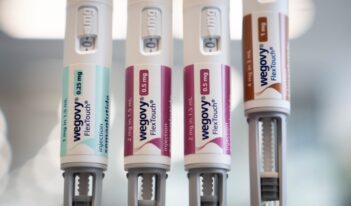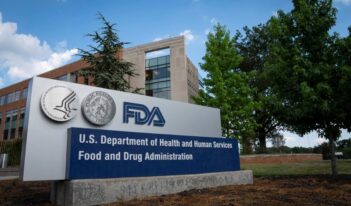
Scholars urge Congress to give FDA more power to regulate dietary supplements.
Consumers trust the U.S. Food and Drug Administration (FDA) to ensure drugs are safe for consumption, but in the case of dietary supplements, consumers must trust the word of manufacturers themselves.
In a recent article, Jessie L. Bekker, Alex Flores, and Michael S. Sinha criticize FDA’s minimal pre-market authority over dietary supplements and ask that Congress grant FDA the power to oversee supplements before manufacturers sell harmful supplements to consumers.
Bekker, Flores, and Sinha explain that FDA’s authority over dietary supplements—which are not a food or drug, but may contain vitamins, herbs, or amino acids—is laid out under the Dietary Supplement Health and Education Act of 1994 (DSHEA). They note that under the DSHEA, FDA cannot require manufacturers to conduct pre-market testing to prove that their supplements contain only advertised ingredients. Instead, FDA can review new dietary ingredients before they enter the market by requiring manufacturers to notify FDA of what the ingredient is and why they expect it to be safe.
The authors note that FDA has more comprehensive post-market enforcement power. According to Bekker, Flores, and Sinha, FDA cannot conduct post-market research on supplements to corroborate manufacturers’ claims. FDA can, however, issue warning letters requesting that manufacturers voluntarily recall adulterated or misbranded supplements. The coauthors further explain that adulterated supplements may omit material ingredients or be prepared in unsanitary conditions and misbranded supplements may have misleading labels or omit ingredients from the label.
If a manufacturer refuses to recall its product, FDA can only pursue a mandatory recall if it can prove that the supplement is harmful or adulterated, Bekker, Flores, and Sinha note. They warn that this burden of proof is very high, as DSHEA requires FDA to show that the dietary supplement has a significant or unreasonable risk of causing injury or illness.
The problem, according to Bekker, Flores, and Sinha, is that even when FDA has issued a public notice about unsafe dietary supplements and manufacturers have voluntarily recalled their supplements, many of these harmful products remain on the market. For example, the authors share a study finding that about one third of supplements that FDA determined contained undisclosed amphetamine analogues remained on the market six years after the agency issued warning letters about them. Even when voluntary recalls work, they allow supplements to remain accessible to consumers for extended periods of time, Bekker, Flores, and Sinha argue. They are concerned that if a product is voluntarily recalled, a manufacturer could rebrand and reintroduce the same product.
Since post-market enforcement inadequately protects consumers from dangerous products, Congress must amend DSHEA to give FDA statutory authority to ensure products are safe before reaching consumers, the authors advocate. Bekker, Flores, and Sinha concede that increased FDA oversight may minimize innovation or increase supplement costs, yet they maintain that having safe products on the market outweighs these downsides.
They envision FDA’s new pre-market authority to include the ability to require manufacturers to submit supplement labels for review and to conduct composition testing. Bekker, Flores, and Sinha note that although manufacturers are currently required to list supplement ingredients on a label, FDA would now be able to review these claims and approve them before marketing. Importantly, pre-market label review would allow FDA to catalogue all dietary supplements sold in the U.S.—closing a gap in FDA’s enforcement, according to Bekker, Flores, and Sinha.
Composition testing is important because new labeling requirements may not be enough to prevent manufacturers from including unlisted ingredients in their products, Bekker, Flores, and Sinha warn. They explain that composition testing would validate manufacturers’ claims about the ingredients in their supplements by having them submit their supplements for testing at an independent, FDA approved laboratory.
They further suggest post-market reform, including for FDA to be able to quickly remove adulterated supplements from the market. Bekker, Flores, and Sinha propose that FDA be able to bypass voluntary recall once it finds that a supplement is adulterated, misbranded, unsafe, or ineffective, shifting the burden of proof to manufacturers to demonstrate their product is safe before it can return to the market. The coauthors argue that shifting the burden to manufacturers would conserve limited agency resources and ensure that supplements do not contain unreported drugs.
Acknowledging that increased oversight comes with increased need for funding, Bekker, Flores, and Sinha propose that Congress tax supplement manufacturers and distributors. Congress could place funds from these taxes into a new trust fund that FDA could then rely on as funding for oversight, the authors suggest. Although taxing supplements may push manufacturers to increase prices, they argue that supplements with a “legitimate medical purpose” such as prenatal vitamins, would be exempt from price increases when prescribed by a physician.
Bekker, Flores, and Sinha conclude that increasing FDA’s authority is necessary to protect consumers, but it is up to consumers to decide whether they value unrestricted access to supplements over safety.



